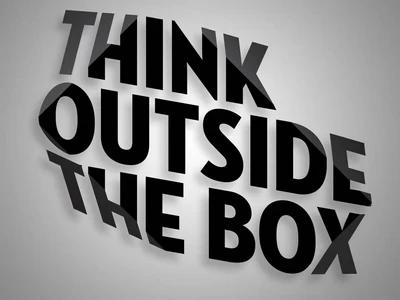We all live inside a box.
Not a wooden one with a lid, but an invisible one made of ideas, opinions, and so-called “truths” programmed into us from the moment we were born.
The walls of this box are built by the voices of our family, priests, teachers, colleagues, friends, and countless others. Layer upon layer, the box is reinforced by what we are told is “right,” “normal,” or “the way things are.” One of the thickest layers? Tradition — unquestioned habits passed down simply because “it’s always been done this way.”
The box can feel safe. It tells us where we belong, what to do, and how to think. It spares us the discomfort of asking hard questions. But that safety is an illusion — it’s a cage that quietly robs us of our freedom to see, feel, and live for ourselves.
Thinking outside the box sounds like a clever slogan, but in reality, it’s hard. The box isn’t just around us — it’s inside us. We carry it in our heads, in our hearts, and in our automatic reactions.
You can see it in everyday life:
-
A young person wants to pursue art, but is told to get a “real job” because security matters more than passion.
-
Someone questions a religious or cultural practice, only to be met with, “That’s how it’s always been — who are you to change it?”
-
A worker suggests a new way of doing things, but the manager waves it off with, “We’ve always done it this way.”
The box whispers, “Stay where you are. Don’t question. Don’t risk.”
Stepping outside is not about breaking all the rules for the sake of it, or rejecting everyone else’s ideas. It’s about discovering who we truly are when all that noise is stripped away. It begins with awareness — noticing the box itself, realising those walls are not part of who we are.
From there, we can ask the oldest and most important question:
Who am I?
Not the “me” shaped by other people’s beliefs, fears, and expectations — but the real me. The one that existed before all the programming.
When we begin to know ourselves, the box loses its power. The heart — that quiet, timeless compass within — can take the lead. And from there, life becomes less about defending the walls and more about walking in open space, breathing in the freshness of our own experience.
As Prem Rawat says, “Know yourself.” It is in that knowing, not in tradition or borrowed truths, that we find the courage to live as we were meant to — awake, free, and guided by the heart.
Know thyself. Let the heart rule. Leave the box behind.


Comments powered by CComment